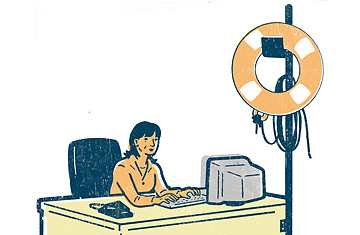
If we learned anything from the past two recessions, it's that the job market doesn't work the way it used to. Before the 1990s, when a recession hit, layoffs spiked, but once the economy picked up, workers were hired back, often for the very same jobs. Since then, recession-related downsizing has tended to be less cyclical and more structural: jobs that appear during a recovery are different from the ones that disappear in the downturn. "Fewer people are laid off, and in that sense the risk is lower," says Erica Groshen, an economist at the Federal Reserve Bank of New York. "However, people who are laid off need to do a very broad search and not assume they'll be able to return to a similar position."
In other words, you have to be ready for anything, even starting a second (or third) career in today's rent-a-job culture. That might sound familiar. "There's huge turnover in the labor force now, even in good times," says former Labor Secretary Robert Reich, a professor at the University of California, Berkeley. So even if we don't go into a recession, it can't hurt to update your skills and make a few social calls to industry contacts. "Your network isn't nearly as valuable if you only use it when you need it," says career consultant Wendy Enelow.
In the meantime, take heart. The 2001 recession was driven by a drop in business spending, but the next one probably won't be. Corporate balance sheets are strong, and unemployment is low—the perfect time to ask for a raise, actually. If you're due for one, you may want to ask sooner rather than later, just in case.